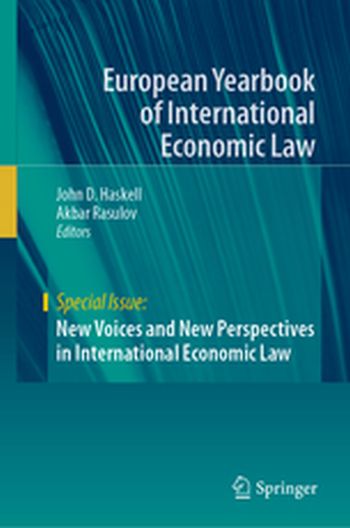
This book brings together a series of contributions by international legal scholars that explore a range of subjects and themes in the field of international economic law and global economic governance through a variety of methodological and theoretical lenses. It introduces the reader to a number of different ways of constructing and approaching the study of international economic law.
The book deals with a series of different theoretical agendas and perspectives ranging from the more traditional (empirical legal studies) to the more alternative (language theory) and it expands the scope of substantive discussion and thematic coverage beyond the usual suspects of international trade, international investment and international finance. While the volume still gives due recognition to the traditional theoretical project of international economic law, it invites the reader to extend the scope of disciplinary imagination to other, less commonly acknowledged questions of global economic governance such as food security, monetary unions, and international economic coercion. In addition to historically-focused and critical perspectives, the volume also includes a number of programmatic and forward-looking explorations, which makes it appealing to a broad audience with a variety of contrasting interests. Therefore, the volume is of particular interest to academics and postgraduate students in the fields of international law, international relations, international political economy, and international history.